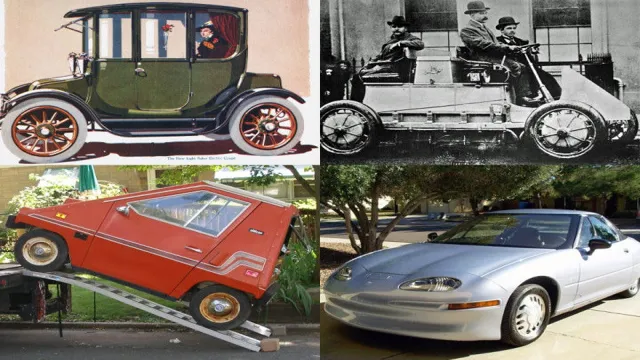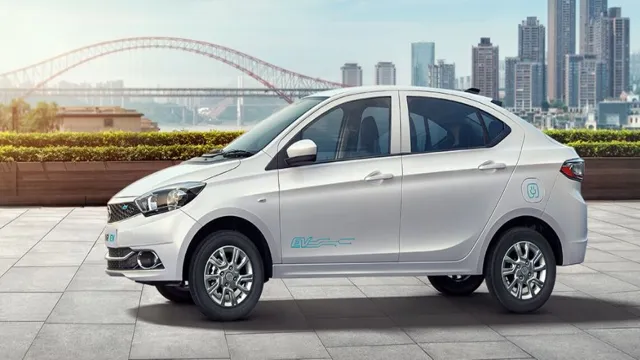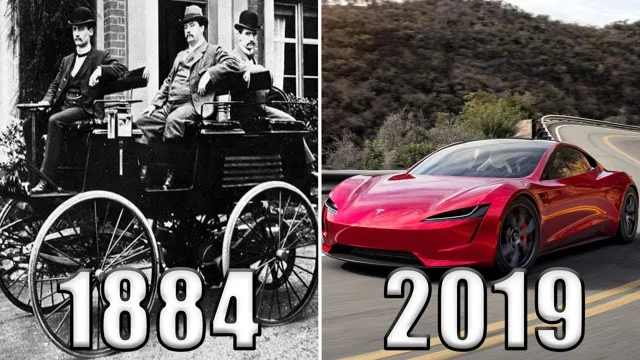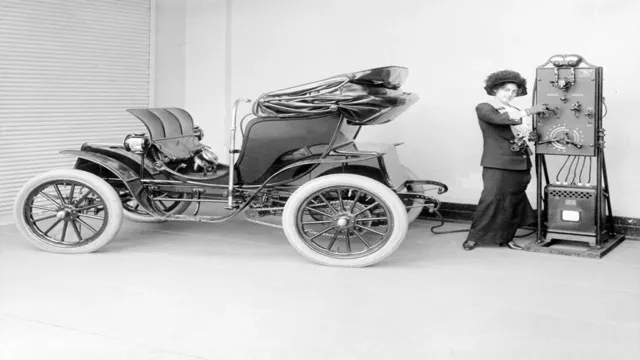The Electric Evolution: Tracing the Fascinating History of Electric Cars
Electric cars have been gaining popularity over the past few years, with more and more people switching to this mode of transportation. But did you know that electric cars are not a new invention? In fact, the history of electric cars dates back to the 1830s, when Robert Anderson invented the first electric carriage. However, it wasn’t until the late 1800s that electric cars really began to take off.
In 1891, William Morrison built the first successful electric automobile in the United States, and by 1900, electric cars were outselling gas-powered cars. But the convenience of gas-powered cars, with their longer range and quicker refueling, eventually led to the decline of electric cars. Fast forward to the 21st century, and electric cars are back in the spotlight.
With concerns about the environment and the need to reduce greenhouse gas emissions, electric cars are seen as a more sustainable option than gas-powered cars. And with advancements in technology, modern electric cars are more efficient and have a longer range than their predecessors. So, as we move towards a greener future, the history of electric cars serves as a reminder that sometimes the best ideas just need a little extra time and innovation to really take off.
Early Development
When we think of electric cars, we often associate them with modern technology and environmental consciousness. However, the history of electric cars dates back to the early 19th century. In fact, the first electric car was built in Scotland in 1837, long before the invention of the gasoline-powered engine.
Despite this early innovation, electric cars struggled to gain traction in the automobile industry due to their limited range and expensive batteries. It wasn’t until the 1990s, with advancements in battery technology and concern for environmental issues, that electric cars began to make a comeback. Fast-forward to the present day, and electric cars have become increasingly popular as people seek out more sustainable transportation options.
As we move towards a more eco-friendly future, the history of electric cars reminds us of the innovation and persistence needed to make real progress.
First Electric Car Invention
The first electric car was invented way back in the 1830s by Scottish inventor Robert Anderson. Anderson’s electric vehicle was powered by rechargeable batteries that were initially used for powering telegraph machines. However, the technology at the time was not advanced enough to produce a practical electric car, and Anderson’s invention remained an experiment.
It wasn’t until nearly 50 years later that French inventor Gustave Trouvé developed a battery-powered electric vehicle with a motor and rechargeable batteries, marking the first practical electric car. The vehicle had a top speed of 12 miles per hour and could travel up to 60 miles on a single charge. The development of electric cars has come a long way since then.
Today, electric cars are becoming increasingly popular due to advancements in battery technology, and the growing concern for the environment.
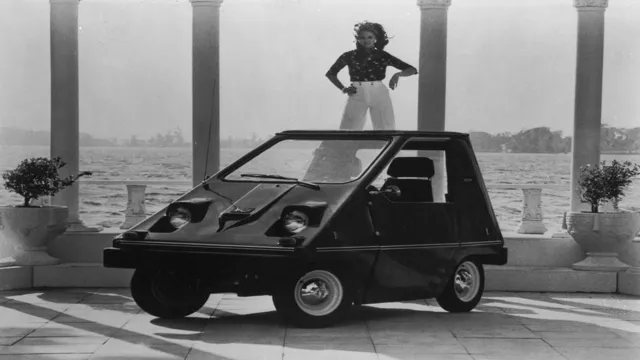
Early Adoption in Europe
Early Adoption in Europe Europe has always been at the forefront of innovation, and technology is no exception. The early development of new technologies is key to ensuring that Europe remains competitive in the global marketplace. From the very beginning, European businesses and entrepreneurs have been quick to adopt new technologies and integrate them into their operations.
This has helped to drive growth, improve efficiency, and reduce costs. As a result, early adoption has become an essential part of the European business landscape. One of the main reasons why Europe has been so quick to adopt new technologies is the region’s highly skilled workforce.
With a long history of innovation, European workers are known for their technical expertise and their ability to adapt to new opportunities. This has helped to create a culture of innovation that encourages businesses to invest in new technologies and explore new opportunities. Another key factor in Europe’s early adoption of new technologies is the region’s strong regulatory environment.
Unlike many other regions, Europe has strict regulations in place that help to protect consumers and ensure that new technologies are safe and effective. This has given businesses and entrepreneurs the confidence to invest in new technologies and integrate them into their operations. Overall, Europe’s early adoption of new technologies has been a major driver of growth, innovation, and competitiveness.
With a skilled workforce and a strong regulatory environment, the region is well-positioned to continue leading the way in the adoption of new technologies. Whether it’s artificial intelligence, blockchain, or the internet of things, Europe is sure to be at the forefront of innovation for years to come.
Modern Electric Cars
The history of electric cars dates back to the early 19th century, when inventors first began experimenting with electric power for transportation. However, it wasn’t until the 20th century that electric vehicles began to gain popularity, with early models such as the Baker Electric and Detroit Electric. In the decades to follow, electric cars saw a decline in use due to factors such as the mass production of gasoline cars and the high cost of electric batteries.
It wasn’t until the 21st century that electric cars began to make a comeback, with the launch of models such as the Tesla Roadster and Nissan Leaf. Today, electric cars continue to grow in popularity as more countries and companies make a commitment to reducing carbon emissions and shifting towards more sustainable forms of transportation. With advancements in technology and infrastructure, the future of electric cars looks bright, and we can expect to see even more innovative models hitting the roads in the years to come.
Tesla’s Impact on the Industry
Tesla has revolutionized the automotive industry by introducing modern electric cars that are not only environmentally friendly but also offer excellent performance and a luxurious feel. The electric cars manufactured by Tesla have changed the way people think about electric cars and have motivated other automakers to invest in electric car technology. Tesla’s impact on the industry has been immense, with many other companies trying to compete with them.
The impact of Tesla can be seen in the massive surge in electric cars’ popularity, with many people now choosing to buy electric cars over traditional gas-powered vehicles. Tesla has set the bar high and has challenged other automakers to develop better electric cars, thereby pushing the industry to invest more in research and development. With the increasing need to reduce carbon emissions, it is safe to say that Tesla’s contribution to the automotive industry will have a significant impact in the coming years.
Overall, Tesla has transformed the industry and has shown that electric cars can be both practical and luxurious.
Electric Cars in Mainstream Markets
Modern electric cars are rapidly gaining popularity in mainstream markets as they offer efficient, eco-friendly, and cost-effective driving options. With advancements in technology, modern electric vehicles come with attractive features such as faster charging times, greater driving ranges, and a wide variety of available models. These cars run on electricity and produce zero emissions, making them a great alternative to traditional gasoline-powered vehicles.
The Tesla Model 3 is a great example of a highly popular modern electric car that boasts a sleek design, impressive performance, and advanced features like autopilot and a fully digital instrument panel. With many countries phasing out fossil-fueled vehicles in the near future, modern electric cars are poised to take over. Plus, incentives like tax credits and lower operating costs make electric cars an appealing and practical option for many car buyers.
Government Policies Supporting Electric Cars
Modern electric cars are rapidly gaining popularity, and government policies across the globe are supporting their adoption. These policies include incentives such as tax credits, rebates, and grants to encourage consumers to purchase electric cars. Additionally, governments are investing in the infrastructure required for charging stations, including building charging stations on highways and in public areas.
The transition to electric cars is crucial to reducing carbon emissions and protecting our environment, and government policies are playing a significant role in making this transition more accessible and cost-effective for consumers. With the increasing support from the government and advancements in EV technology, electric cars are becoming a more practical and viable option for people looking to reduce their carbon footprint and save money on transportation.
Advancements in Battery Technology
The history of electric cars is a long and interesting one, dating back to the early 1800s. However, the technology powering these vehicles has come a long way since then. One of the most significant advancements in battery technology has been the development of lithium-ion batteries.
These batteries are lighter, have a higher energy density, and are more durable than the previous nickel-metal hydride batteries commonly used in older electric cars. This has resulted in a longer driving range and quicker charging times, making electric cars a more practical option for daily use. Additionally, advancements in battery management systems have helped extend the lifespan of these batteries, reducing maintenance costs and making electric cars more cost-effective in the long run.
With ongoing research and development, it’s exciting to think about what new advancements in battery technology will emerge in the future, making electric cars an even better option for the environment and for drivers.
Lithium-Ion Battery Development
Lithium-ion batteries have revolutionized the technology industry, powering everything from smartphones to electric vehicles. Recent advancements in battery technology have resulted in increased energy densities and longer lifetimes for these batteries. These developments are making electric vehicles more practical for everyday use, allowing them to travel longer distances on a single charge.
One of the key components of these advancements is the use of new materials in the battery’s construction. The use of silicon in the battery anodes and solid-state electrolytes has shown promising results in enhancing energy density and reducing the risk of fires. However, there are still challenges that need to be overcome in the development of these batteries, such as reducing manufacturing costs and improving the sustainability of the materials used.
Despite these challenges, the advancements in lithium-ion battery technology show immense promise in transforming the way we power our devices and vehicles in the future.
Tesla’s Battery Technology Breakthroughs
Tesla has been at the forefront of advancing battery technology for electric vehicles, making significant breakthroughs in recent years. One of the key advancements is their use of silicon in the anodes of their batteries, increasing their energy density and overall performance. This has allowed Tesla to increase the range of their vehicles and reduce the size and weight of the batteries, making them more efficient and cost-effective.
Additionally, Tesla has been working on reducing the use of cobalt in their batteries, which is expensive and often mined in unethical ways. The company has also been developing new battery chemistries that will further increase energy density and extend the life of the batteries. These advancements in battery technology are critical for the widespread adoption of electric vehicles and Tesla is leading the way in making it a reality.
Future of Electric Cars
The history of electric cars dates back to the mid-19th century, when early inventors first started experimenting with electric power as a form of transportation. The first commercially successful electric car was invented by Thomas Davenport in 1835, but it wasn’t until the late 1800s that electric cars started to become more common on city streets. However, the rise of gasoline-powered cars in the early 20th century led to a decline in the popularity of electric cars, and it wasn’t until the 1970s that interest in electric cars started to pick up again.
With concerns about the environment and the finite supply of oil, many people are turning to electric cars as a more sustainable and eco-friendly alternative. The future of electric cars looks bright, with more and more manufacturers introducing new models every year. As battery technology improves and charging infrastructure becomes more widespread, it’s likely that electric cars will continue to grow in popularity in the years to come.
Conclusion
In the history of electric cars, there have been moments of excitement and moments of disappointment. From the early days of the 19th century to the modern era, electric vehicles have seen their fair share of ups and downs. However, one thing is clear: electric cars are not a passing fad, but rather a steadily growing trend.
As we face increasing concerns about climate change and the need for sustainable transportation, electric vehicles offer a promising solution. So let us raise a glass to the history of electric cars, acknowledge the pioneers, and embrace the future where we can drive with clean energy and without compromise on performance. As the saying goes, “the future is electric, and it’s brighter than ever.
“
FAQs
What is the history of electric cars?
The history of electric cars dates back to the 19th century with the invention of the first electric vehicle by a Scottish inventor named Robert Anderson in 1832. Since then, electric cars have gone through many iterations and technological advancements, leading to the modern electric cars we see today.
When did electric cars become popular?
Electric cars gained popularity in the late 1800s and early 1900s due to their quiet operation, ease of use, and lack of emissions. However, the introduction of the Ford Model T in the early 20th century made gasoline-powered cars more accessible and affordable, which led to a decline in the popularity of electric cars.
What are some notable advancements in electric car technology?
There have been significant advancements in electric car technology in recent years, including improvements in battery technology, electric motor efficiency, and charging infrastructure. These advancements have led to longer driving ranges, faster charging times, and more affordable electric cars, making them a viable option for many consumers.
What is the future of electric cars?
The future of electric cars looks promising, with many major automakers announcing plans to phase out internal combustion engine vehicles in favor of electric vehicles. This shift towards electric cars is due to their lower emissions, reduced dependence on fossil fuels, and increasing consumer demand for sustainable transportation options. With continued advancements in technology and infrastructure, the future of electric cars is bright.
